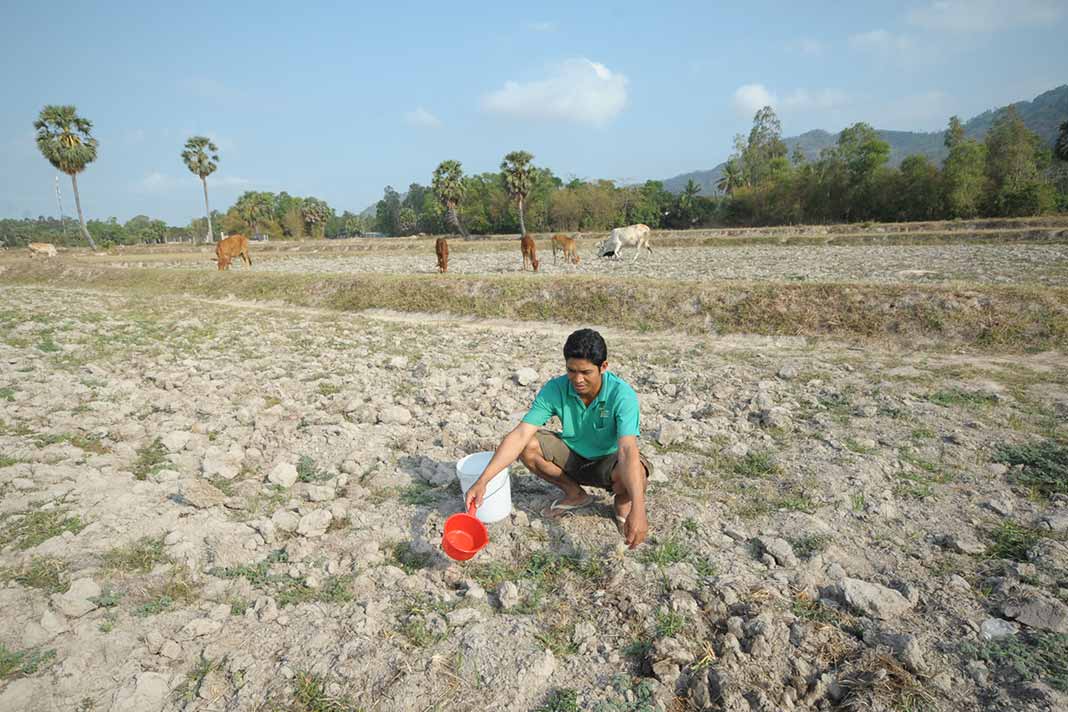The Covid-19 epidemic throws the world economy into turmoil and Vietnam is no exception. This infectious disease deals a heavy blow to not only industries and economic sectors but also people’s livelihoods. Furthermore, natural disasters leading to drought and saltwater intrusion in the Mekong Delta are making things even worse.
The Government has to spend enormously fighting the pandemic and alleviating the aftermath of natural disasters. Some solutions have been proposed in an attempt to relieve the hardships for the economy, businesses and the people, including reductions or deferred payments of tax, debt and social insurance, along with interest rate cuts. Some individuals have used their own money to give others a helping hand in this critical situation.
 In order to minimize the difficulties for the people and companies, State-owned enterprises in the electricity and fuel industries should accept smaller profits or even use price stabilization funds to bring down the prices of such essential products as electricity and fuel to help the community overcome this tough time.
In order to minimize the difficulties for the people and companies, State-owned enterprises in the electricity and fuel industries should accept smaller profits or even use price stabilization funds to bring down the prices of such essential products as electricity and fuel to help the community overcome this tough time.
Calculations based on the joint balance sheet published by the General Statistics Office show that fuel accounts for about 3% of the total production value and 5% of the total intermediate costs of the economy. A drop of 10% in fuel prices will increase gross domestic product (GDP) by 1.2%. If the decline is 20%, GDP will grow approximately 2% and the consumer price index (CPI) fall 0.17%. With the monetary policy loosened, or a stimulus package introduced, there may be moral and inflationary risks, whereas a fuel price cut is a much safer and more effective move.
Heaven probably has not forsaken Vietnam, as the global fuel prices saw their greatest fall in 20 years just a while ago. As per data from the Ministry of Industry and Trade on the average price of finished gasoline products in the Singapore market, RON 92 gasoline and RON 95 gasoline have sold for US$43 and US$44 per barrel respectively over the past 15 days, down 30-35% from the previous cycle.
Moreover, the global oil prices are plummeting. Therefore, the prices of gasoline sold at home are expected to drop by VND3,000-4,000 a liter. Domestic gasoline prices should have dropped in tandem with the world fuel prices.
However, with the joint decision of the Ministry of Industry and Trade and the Ministry of Finance, that the price stabilization fund will set aside VND200 for each liter of E5 gasoline and VND800 each litter of RON 95 and diesel, fuel prices did not go down the way they should have been.
It seems the industry and trade ministry is still in favor of petroleum and fuel enterprises. Normally, these firms along with power utilities have always been guaranteed to never incur losses thanks to the prescribed profit margins, which are even higher for the electricity industry.
 What the fuel price stabilization fund is in practice is to use the money of fuel buyers in advance to “stabilize prices” for their sake without any third-party intervention.
What the fuel price stabilization fund is in practice is to use the money of fuel buyers in advance to “stabilize prices” for their sake without any third-party intervention.
What’s more, the February 2020 report of the Ministry of Finance shows that the total balance of the price stabilization fund was nearly VND2.8 trillion at the end of the fourth quarter of 2019, but the sum of interest incurred was just more than VND2 billion. In other words, the money paid into this fund has not been used effectively. It is such a waste to deposit it at banks with a low interest rate.
The State management agencies, particularly the Ministry of Industry and Trade, must be on the side of the consumer and the vast majority of the business circle, not just a few of them. Meanwhile, many philanthropists, celebrities and proprietors have spent their own money supporting those in need. The industry and trade ministry should not be persistently in support of certain companies. Instead, it must go along with the people, the entire business community and the Government in this turbulent time.
By Bui Trinh











